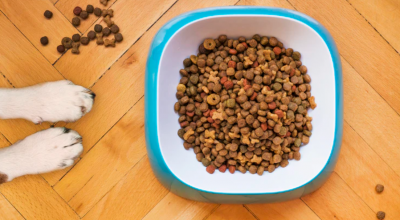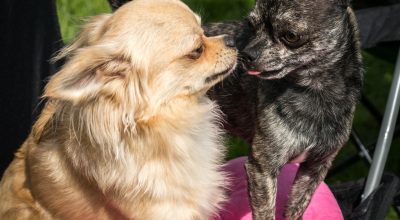Great things come in small packages, and we can say the same for Chihuahuas. However, you should never underestimate the size of this breed. As much as they are small, they also pack a massive personality. They are notorious for being ‘angry’ all the time, with bared teeth and a menacing growl. This makes me wonder: why do Chihuahuas growl so much? Are they bad-tempered dogs?
In this post, I will discuss why Chihuahuas display aggressive behavior, the causes behind it, and what you can do. Just like any canine behavioral problem, there’s a workaround to fix this.
Why do Chihuahuas growl so much?
It’s easy to brand Chihuahuas aggressive because of their seemingly growly nature. But the truth is that there are reasons behind the behavior. Here are some that you should know:
🐾It’s in their genes
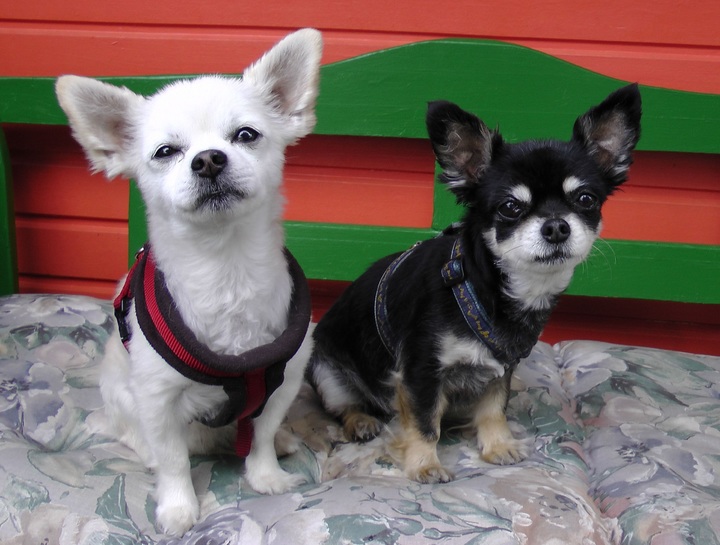
Chihuahuas are naturally aloof of strangers. It also takes a lot of training and patience to make them accustomed to a multi-canine household. Aside from that, they are sensitive canines that could snap under the mildest provocation.
Their larger-than-life personality is both attractive and unappealing to various pet owners. Overall, Chihuahuas can be a spicy hot tamale or a sweet vanilla churro. It depends on how you raise them and the manner of breeding the pups.
🐾Poor training and socialization
Aside from their innate characteristics, Chihuahuas can be growly if they aren’t raised properly. Poor or lack of training will lead to aggressive behavior on any dog.
The good thing is that Chihuahuas are highly trainable. Pet owners just have to dedicate time and effort to address negative behavior. As with any dog, training a Chihuahua isn’t an overnight task.
Moreover, failing to socialize a Chihuahua is set to make it an aggressive dog. Your little Chi will show aggression towards other people and even your family members. It will end up in intense growling, barking, and even biting.
In the end, these two aspects are the responsibility of the pet owner. You should never punish your Chihuahua for behaving roughly if you haven’t done your part.
🐾Small dog syndrome
Small dog syndrome refers to the tendency of pet owners to treat small dogs favorably than bigger ones.
For example, small dogs like Chihuahuas can get away with growling, while bigger dogs will be treated with a punishment. This is because small dogs are seen as ‘perpetual babies’ by their owners.
Also known as Napoleon Complex, this treatment creates a slew of behavioral problems among dogs. In the long run, your Chihuahua will repeat its growling and aggressive behavior because he knows he can get away with it. And by not correcting such negative action, you’re reinforcing it even further.
Small dog syndrome isn’t really a health problem; it’s more of a phenomenon that you can easily fix. If your Chihuahua is exhibiting the following behavior, you’re like dealing with the said syndrome:
- Begging for food
- Defying your commands
- Not listening
- Growling at other pets and strangers
- Jumping on people
- Hopping into bed or couch without being asked
- Biting other people
- Pulling on a leash
These problems just mean that you have work to do. Proper training is crucial here, which may or may not require the help of a professional.
🐾Abusive past
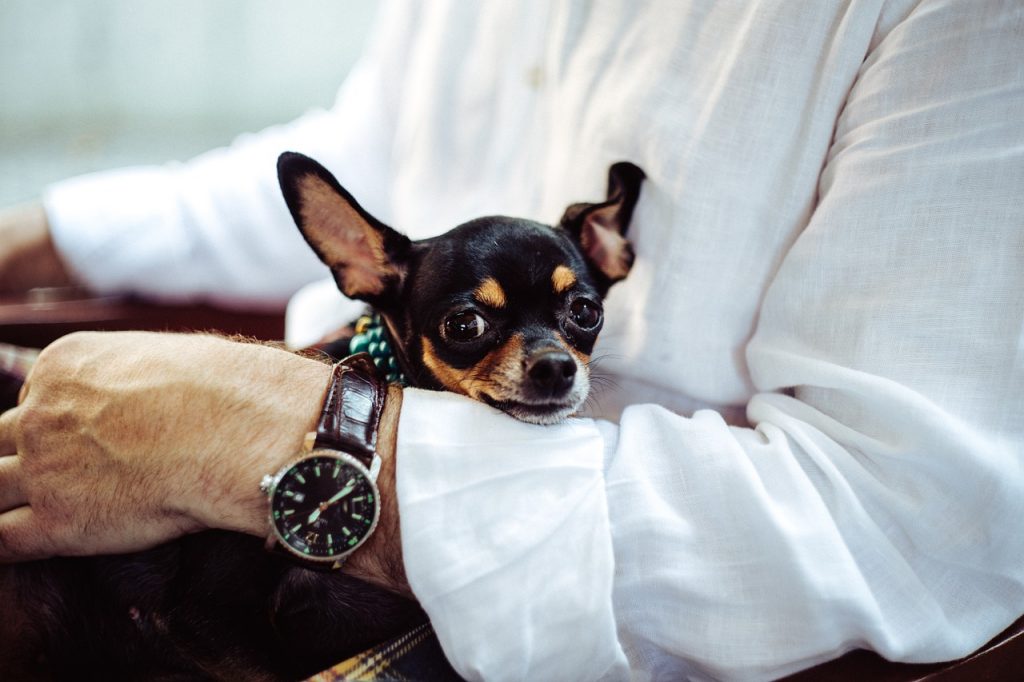
If you have a rescue Chihuahua, an abusive past might be causing the growling behavior. Dogs that have been beaten up, starved, or neglected will develop defensive behavior. It can be growling, biting, scratching, and so on.
Take note that these problems can’t be addressed with violence and punishment. Your Chihuahua needs rehabilitative training to help it regain its trust in humans. This takes time and a lot of effort.
The challenging part about adopting a Chihuahua is you don’t fully know what happened in its past. If possible, check the dog’s history and try to contact its previous owners. This will give you an idea of how the pooch landed on the shelter in the first place.
Aside from that, if a family member accidentally stepped in or hurt your Chi in the past, it will likely growl at the sight of that person. This is much so if the person repeatedly mistreats the dog.
🐾Anxiety issues
Another thing you should consider is that Chihuahuas can have anxiety issues. This breed doesn’t like being left alone for long periods. Without a companion, this pooch will become agitated, aggressive, and destructive.
Being left alone for long periods can drive your dog crazy. The Chi will scratch the door, bark endlessly, and have accidents all over the house.
Also, Chihuahuas will experience noise anxiety. In this case, the pooch will act aggressively or nervously due to loud sounds.
🐾Health problems
Lastly, it’s also possible that your dog is experiencing physical pain due to a health problem. No matter how trained or socialized, all dogs will show signs of aggression like growling when they are ill.
For example, if your Chihuahua hurts its paw and you try to touch it, you’ll surely get growled at. As a small dog, Chis can get hurt easily, so you have to be on the lookout for signs.
It’s best to bring your dog to the vet for proper examination. This way, your pet will receive immediate treatment if necessary.
How to stop Chihuahua’s from excessive growling
Growling might seem like your Chihuahua’s only mood, but there’s a way to fix it. Here are some steps that will help you combat the aggressive nature:
✔️Know your dog’s threshold
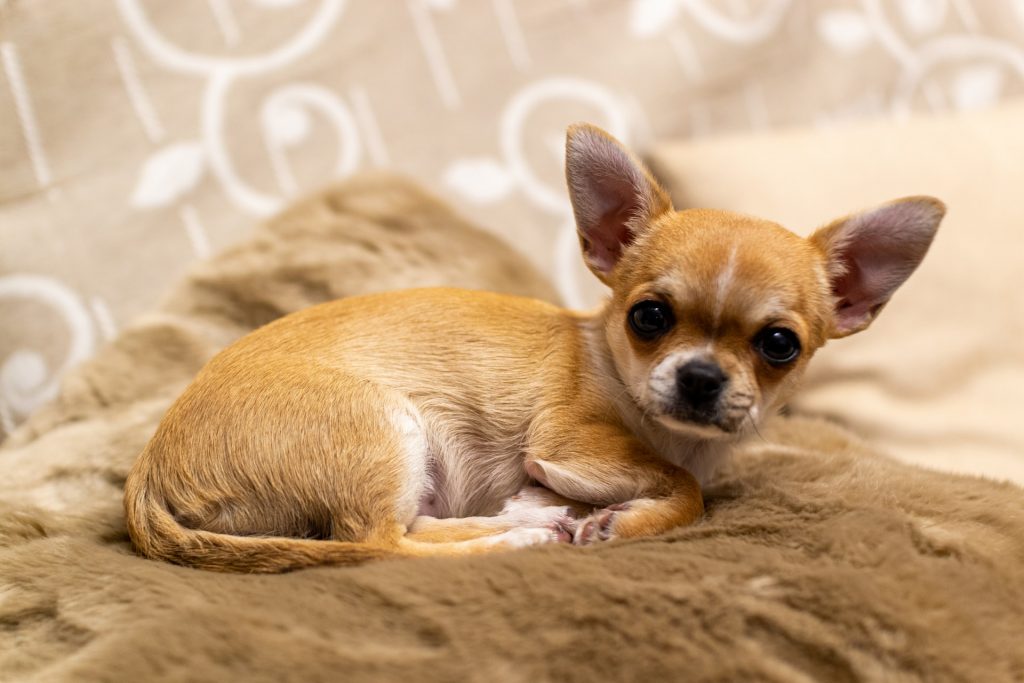
Each dog has its own threshold when it comes to stimulation. Once the pooch becomes overstimulated, it will start to show aggression.
It’s important to observe your dog and see how fast it growls over various stimuli. For example, does your Chihuahua growl when a stranger tries to pet him? If so, that means your dog can only tolerate the presence of a stranger from a distance.
Your observation at this point will help you on the following points. Remember that each Chihuahua is different, so you should never use someone else’s dog as a point of reference.
✔️Evaluate the surroundings
Next, you should evaluate the surroundings when the growling happens. Most of the time, stressors and triggers will make your Chihuahua act aggressively.
Ask yourself, is there another dog around? Are there loud sounds? These observations will make a difference in how you’ll approach training.
As much as possible, you should remove stressors that push your Chihuahua to the limits.
✔️Desensitize your Chihuahua
One of the biggest steps in preventing growling in Chihuahuas is to desensitize the pooch to the stimulus. For example, if your Chihuahua growls a lot toward strangers, you can try the following steps:
- Ask a person your dog hasn’t seen yet to stand outside your fence.
- Let your Chihuahua see the person and observe its reaction
- If the Chi growls and barks, call its name
- Once your dog stops barking, give it a treat right away. You can also use a clicker before the treat to mark the reward/response.
- Do this repeatedly until your Chihuahua learns that not growling is a rewarded behavior.
- From there, you can ask the stranger to enter the fence. Repeat the process until your Chi can tolerate the presence of the person at a closer distance.
Take note that you should keep your Chihuahua leashed throughout the process. Also, you should teach your pet basic obedience before starting this drill. Commands like ‘stop’, ‘sit’, ‘stay’, ‘come’, and so on will give you more control over your dog.
Moreover, you can repeat the process above on other stimuli like dogs, objects, and various sounds. Over time, your Chihuahua will learn that these stimuli are harmless and don’t warrant aggressive responses like growling.
✔️Start in-depth training
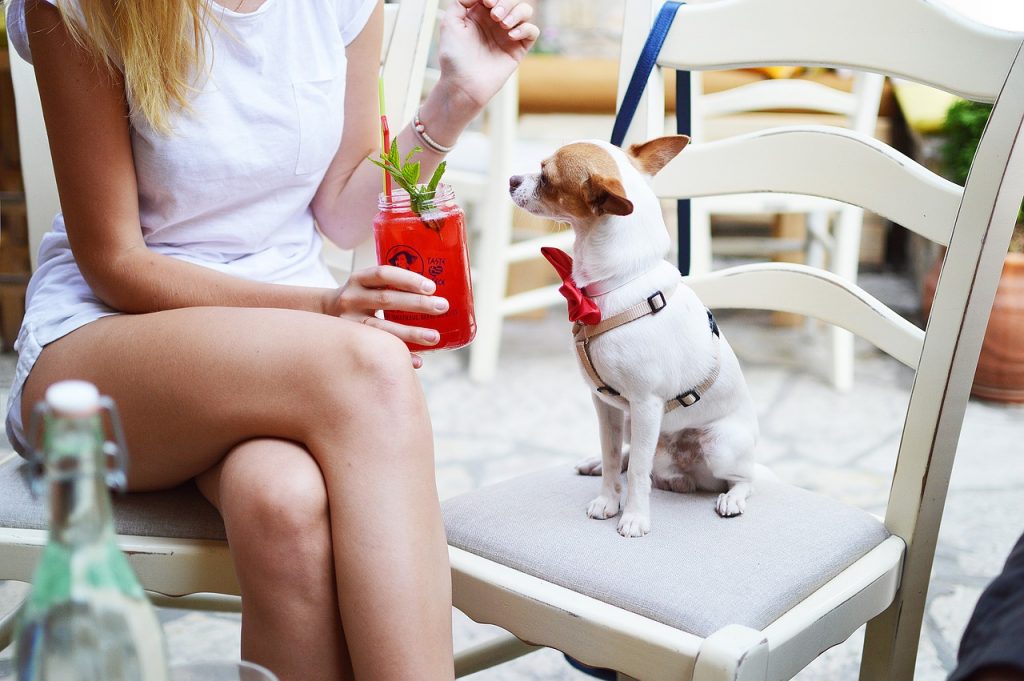
Next, you have to focus on training your dog. For this part, I will discuss how you can fix small dog syndrome. Take note that the process also requires changes on your part as the pet owner. Negative behavior should never go unaddressed. Aside from that, you can do the following:
- Ask the dog to wait for its food. Before giving a meal or treat, ask your Chi to sit and wait first. This habit does two things: reinforcing basic obedience training and setting yourself as the alpha.
- Treat your Chi like a big dog. Are you fond of carrying your Chihuahua around? It’s time to stop that habit. Let the dog walk on its own. Call its name and let it come to you without picking the pooch up. If your Chi finds it hard to climb the couch, you can place a dog ramp beside it. By making your dog independent, it will be less likely to be whiny and demanding.
- Set a positive environment. If your Chihuahua doesn’t growl when a guest arrives, give it a treat right away. This will teach your dog that the presence of strangers is a rewarded experience. Over time, your Chihuahua will stop growling toward other people.
- Set the rules. If you want to beat small dog syndrome, you have to set the rules and stick with it. Otherwise, your Chihuahua will try to get its way.
✔️Utilize behavior modification
Lastly, you should institute behavior modification. This is the process of changing your pet’s behavior or reaction toward things. Basically, you’re going to convince your Chihuahua that the bad thing is actually a good thing.
Moreover, behavior modification goes hand in hand with desensitization. Aside from getting your dog used to the stimuli that make him growl, you’re also going to shape its reaction towards it.
This is a tricky task, so the help of a dog trainer will come in handy for the worst-case scenarios. Professional help will ensure that your Chihuahua will outgrow its growling habits and other aggressive tendencies.
Frequently Asked Questions
Q: Why does my Chihuahua growl when I pet him?
A: Some Chihuahuas will grow because they are not in the mood for pets. However, there are also some canines who will emit a low growl as a form of contentment. It’s comparable to the purr of a cat. Assessing the environment and your dog’s body language will help you determine the nature of the growl.
Q: Can Chihuahuas be friendly?
A: If trained and socialized well, Chihuahuas can be friendly. They can get along with kids and their families. However, you have to take extra caution as this breed doesn’t like the presence of other canines. They are also quite aloof around strangers.
Q: Are Chihuahuas protective of their owners?
A: Chihuahuas are quite sensitive and protective dogs. Despite their small size, they are willing to fight back in the face of danger. Chihuahuas also tend to be jealous dogs, especially when it comes to their favorite person. They are also known to pick favorites, so even family members could be on the receiving end of their growl.
Q: Are Chihuahuas more aggressive than Pit Bulls?
A: Believe it or not, experts say that Pit Bulls are actually chiller or less aggressive than Chihuahuas. This is despite the stereotypes among Pit Bull breeds being vicious and threatening. The truth is that Chihuahuas can be more aggressive, especially toward bigger dogs.
Q: Has anyone ever been killed by a Chihuahua?
A: It’s possible for a Chihuahua to maul a person to death with their 3,900 psi bite force. So far, there are only two human deaths recorded from 2005 to 2018 said to be undertaken by a Chihuahua. Overall, the risk of getting killed by this breed is extremely low.
Q: Why does my dog growl when I look at him?
A: Looking a dog straight in the eye is a provocative move. This might be the reason why your pet growls at you when you look at him. You should also pay attention to the environment and what other factors are affecting your pet.
Final words
Why do Chihuahuas growl so much? This behavior is rooted in a Chihuahua’s genes, upbringing, and the stimuli present in its environment. It’s crucial to train and desensitize your pet to ensure that it will grow to be a well-mannered dog. If all your efforts fail, it’s never too late to enlist the help of a professional dog trainer.
Here at ILoveChihuahua, we share our personal experiences as owners of this feisty breed. We talk about recommended methods, dog supplies picks, and advice on common Chihuahua problems. Our goal is to promote responsible dog ownership, so there would be fewer Chihuahuas in shelters.

